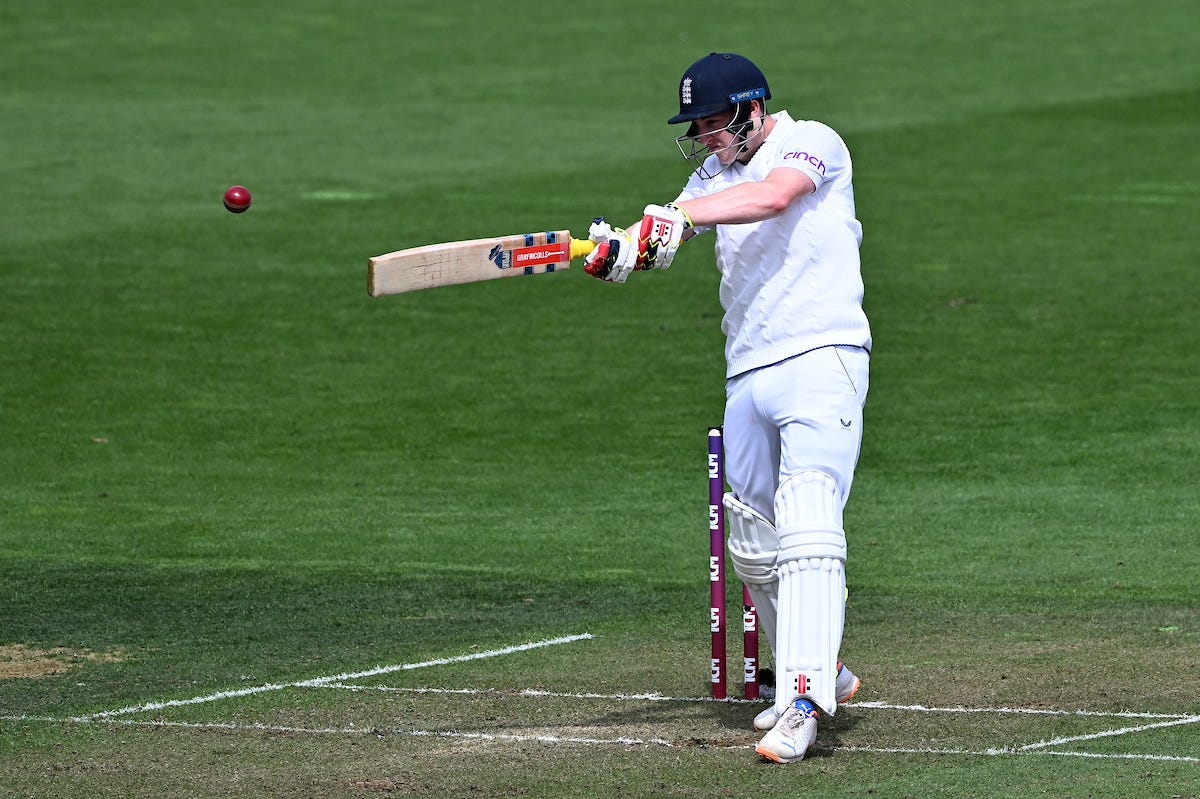Notes from the Basin #1
ENGLAND 315-3
New Zealand had a chance this morning. They got the side of the coin they wanted and the colour of pitch they wanted. They held their catches - one an absolute speccie by Michael Bracewell at third slip - and were rewarded with three early wickets. There was the pinkie-promise of more.
Despite…
Keep reading with a 7-day free trial
Subscribe to The Bounce to keep reading this post and get 7 days of free access to the full post archives.


